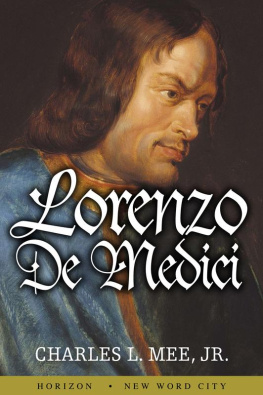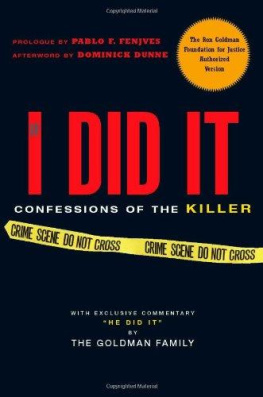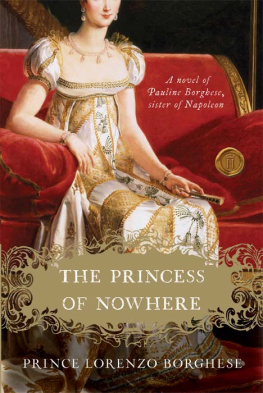Simpson Lorenzo C. - The Unfinished Project
Here you can read online Simpson Lorenzo C. - The Unfinished Project full text of the book (entire story) in english for free. Download pdf and epub, get meaning, cover and reviews about this ebook. publisher: Taylor & Francis Group, genre: Romance novel. Description of the work, (preface) as well as reviews are available. Best literature library LitArk.com created for fans of good reading and offers a wide selection of genres:
Romance novel
Science fiction
Adventure
Detective
Science
History
Home and family
Prose
Art
Politics
Computer
Non-fiction
Religion
Business
Children
Humor
Choose a favorite category and find really read worthwhile books. Enjoy immersion in the world of imagination, feel the emotions of the characters or learn something new for yourself, make an fascinating discovery.
- Book:The Unfinished Project
- Author:
- Publisher:Taylor & Francis Group
- Genre:
- Rating:5 / 5
- Favourites:Add to favourites
- Your mark:
- 100
- 1
- 2
- 3
- 4
- 5
The Unfinished Project: summary, description and annotation
We offer to read an annotation, description, summary or preface (depends on what the author of the book "The Unfinished Project" wrote himself). If you haven't found the necessary information about the book — write in the comments, we will try to find it.
The Unfinished Project — read online for free the complete book (whole text) full work
Below is the text of the book, divided by pages. System saving the place of the last page read, allows you to conveniently read the book "The Unfinished Project" online for free, without having to search again every time where you left off. Put a bookmark, and you can go to the page where you finished reading at any time.
Font size:
Interval:
Bookmark:

Advance praise for
The Unfinished Project
This brilliant new work critically addresses and comparatively evaluates the implications of modernism and postmodernism on multiculturalism. Neither emerge unscathed, but Simpson takes the positive contributions of each to develop a postmetaphysical humanism, one that acknowledges that individuals can never wholly transcend their culture and historytheir identity, in other wordsbut that also rejects the permanence of absolute difference or incomprehension across cultural divides. Humanity, Simpson urges, will be forged rather than found, and as such, is the unfinished project yet to be accomplished.
Linda Martn Alcoff, Professor of Philosophy, Syracuse University
Responding to the philosophical situation of our time in which the voices of postmodernismdeclaring the death of humanism and the bankruptcy of reasonwage war against the Enlightenment concepts of a common humanity and a rational social order, Lorenzo Simpson deftly splits the difference as he wends his way towards a new perspective on rationality and a viable humanism for the new millennium. This skillfully crafted volume should become required reading for all those who have worries about the future of philosophy.
Calvin O. Schrag, George Ade Distinguished Professor of Philosophy, Purdue Unversity, and author of The Self After Postmodernity and The Resources of Rationality
If there is a philosopher who manages to be both vigorous and gentle, both circumspect and courageous, it is Lorenzo Simpson, and in this book he leaves us with an appropriately encouraging convictionwe all can learn to live together honestly and with mutual understanding.
Albert Borgmann, Regents Professor of Philosophy, University of Montana, and author of Holding On to Reality
Simpson's defense of humanism as a 'situated cosmopolitanism displays tremendous range. Few philosophers have mastered the nuances of music theory, cultural criticism, postmodernism, hermeneutics, and critical theory to the same degree; and those who have seldom write with such clarity.
David Ingram, Professor of Philsophy, Loyola University of Chicago, and author of Group Rights: Reconciling Equality and Difference
THE UNFINISHED PROJECT
Toward a Postmetaphysical Humanism
LORENZO C. SIMPSON

Published in 2001 by
Routledge
29 West 35th Street
New York, New York 10001
Published in Great Britain by
Routledge
11 New Fetter Lane
London EC4P 4EE
This edition published 2011 by Routledge:
Routledge
Taylor & Francis Group
711 Third Avenue
New York, NY 10017
Routledge
Taylor & Francis Group
2 Park Square, Milton Park
Abingdon, Oxon OX14 4RN
Routledge is an imprint of the Taylor & Francis Group.
Copyright 2001 by Routledge
All rights reserved. No part of this book may be reprinted or reproduced or utilized in any form or by any electronic, mechanical, or other means, now known or hereafter invented, including photocopying and recording, or in any information storage or retrieval system, without permission in writing from the publishers.
Library of Congress Cataloging-in-Publication Data
Simpson, Lorenzo Charles.
The unfinished project; toward a postmetaphysical humanism / Lorenzo C. Simpson.
p. cm.
Includes bibliographical references and index.
ISBN 0415916372 ISBN 0415916380 (pbk.)
1. Humanism. 2. Postmodernism. 1. Title.
B 821.S546 2001
144dc21
00068389
For Sean and Eva,
may they further the unfinished project
and benefit from its pursuit.
And to the memory of Armstead L. Robinson,
a true situated cosmopolitan.
Contents
This argument represents an extension of my projectbegun in my last book, Technology, Time, and the Conversations of Modernity (1995)to develop a critical pluralism, a nonrelativistic but hermeneutic version of critical rationality. I do so here by revisiting the question of humanism. One of the genuine difficulties facing multicultural societies is how to negotiate judiciously the criteria of worth or value that will guide us in deciding what should command our recognition as consumers of culture and as participants in political communities. The dilemma lies in discerning how to pursue such a negotiation in a way that does not beg questions against the yet-to-be included or against what is taken to have established worth. Forging a language for such a negotiation seems to me one of the central challenges facing the humanities and, indeed, our society now, and I hope in this book to make a contribution to that project. By revisiting humanism in the way that I propose here, I hope also to say something useful about ongoing debates about multiculturalism, which, I believe, has not yet received adequate philosophical attention.
My earliest sustained work on this study was supported by a year-long fellowship in 199697 granted by the Woodrow Wilson International Center for Scholars in Washington, D. C., a haven for scholarship in the midst of our political capital and an ideal place for surveying broad intellectual trends across a number of disciplines. I would like to express my appreciation to that institution and to its gracious director of fellowships, Ann Sheffield, for research support, a collegial setting, and a challenging environment. I also acknowledge with gratitude my former institution, the University of Richmond, for granting me a sabbatical and two Summer Research Fellowships to pursue this project as well as a year of leave in order to take advantage of the Wilson Center fellowship.
The collegial, cross-disciplinary interaction at the Wilson Center was unusually stimulating, and a reading group in which I participated there on ethics and political culture, organized by Dorothy Ross, was particularly useful to me as I worked on this book. My conversations with, among others, historians Temma Kaplan, Steven Pincus, and Dorothy Ross; religious scholars Anne Feldhaus and Ernest Wallwork; legal philosopher David Luban; novelist Peter Schneider; anthropologists Dale Eickelman and Henry Munson; and social theorist Shmuel Eisenstadt proved immensely valuable to this undertaking.
I have read versions of , the core of my argument, at several places, beginning in 1995 at Amherst College, where I was invited by Robert Gooding-Williams to participate in a lecture series on Contemporary Currents in Continental Philosophy. Subsequent versions were presented at the Woodrow Wilson International Center for Scholars, the Society for Phenomenology and Existential Philosophy, and at my current institutional home, the Department of Philosophy of the State University of New York at Stony Brook. I extend my thanks to all of these institutions for providing me the opportunity to present my work and to the respective audiences for helpful discussion.
Though we have not communicated directly about its contents, Iris Marion Young was instrumental in inspiring this study. In informal conversation after I had delivered a commentary on her presentation at a conference entitled Democracy and Differenceorganized by Seyla Benhabib and sponsored by Yale Universitys Program in Social Thought and EthicsIris asked me, Why is community so important to you? In part, this essay in a sense is an extended response to that question. A number of individuals have generously and graciously offered sage advice at various stages of this project, and I have greatly benefitted from comments, suggestions, and criticisms made on earlier drafts of various chapters by Robert Gooding-Williams, Lydia Goehr, Gary Shapiro, Hugh West, and by my current colleagues, Edward Casey, Robert Crease, and Krin Gabbard. Additionally, I found the comments on the penultimate version of this study by Routledges anonymous reviewers to be especially helpful. I am truly indebted to all of these individuals. Needless to say, I bear full responsibility for the final content.
Next pageFont size:
Interval:
Bookmark:
Similar books «The Unfinished Project»
Look at similar books to The Unfinished Project. We have selected literature similar in name and meaning in the hope of providing readers with more options to find new, interesting, not yet read works.
Discussion, reviews of the book The Unfinished Project and just readers' own opinions. Leave your comments, write what you think about the work, its meaning or the main characters. Specify what exactly you liked and what you didn't like, and why you think so.

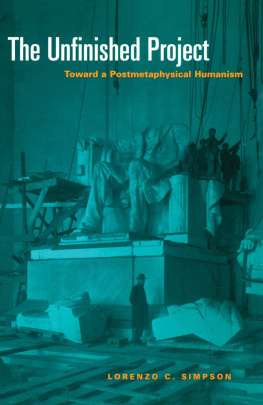
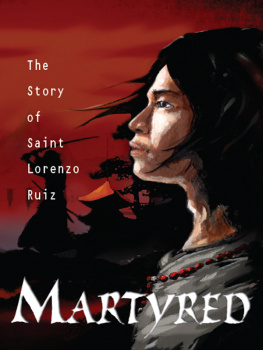
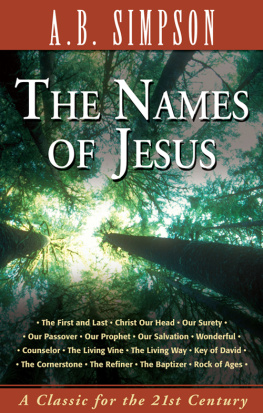
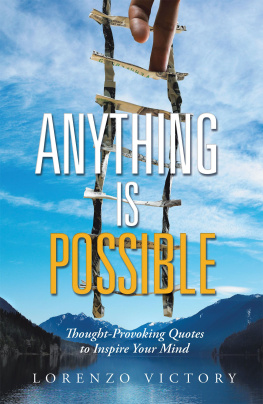
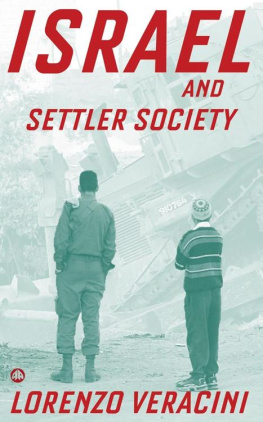



![Kyle Simpson [Kyle Simpson] - You Don’t Know JS: Up & Going](/uploads/posts/book/121420/thumbs/kyle-simpson-kyle-simpson-you-don-t-know-js.jpg)
